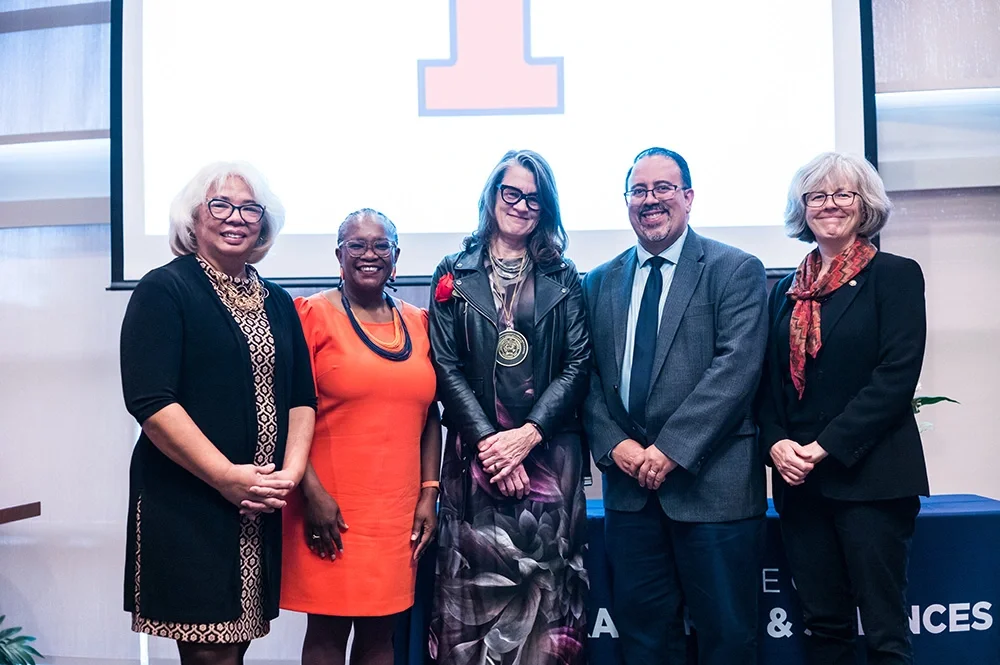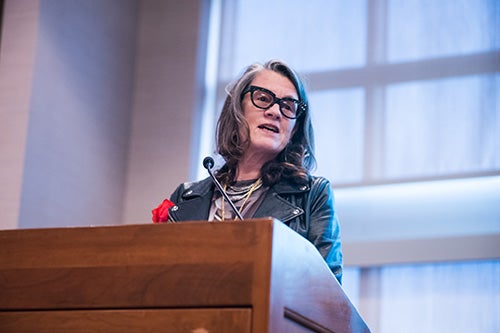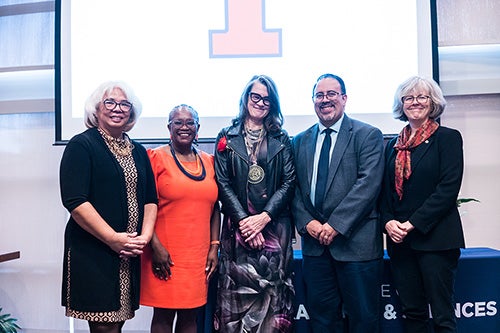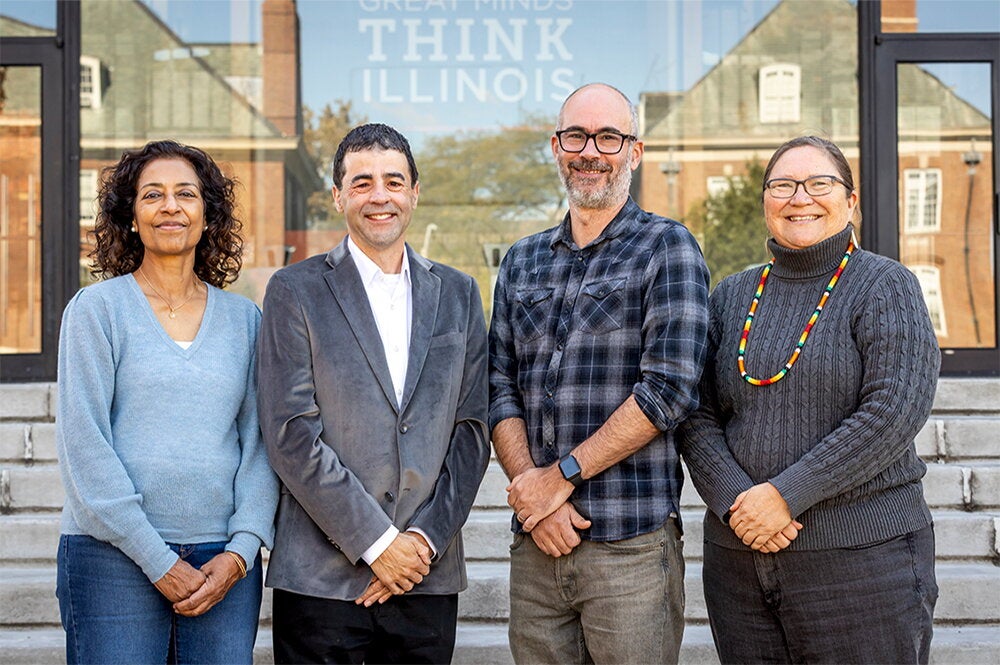

When professor Leslie J. Reagan entered her graduate program at the University of Wisconsin-Madison she and the other students in her cohort were told they would never get a job. The field of women's history was virtually nonexistent at the time.
“I thought, that's okay, I’ll work in a women's bookstore. Little did I know that most of those independent bookstores would disappear and that I would in fact get a job as a professor,” she recalled at a recent ceremony at the Alice Campbell Alumni Center honoring her as the Robert W. Schaefer Professor in Liberal Arts and Sciences.
The Robert W. Schaefer professorship is made possible by a gift from alumnus Robert W. Schaefer (BS, 56’, chemical engineering). Schaefer was a chemical engineer who was part of the team that introduced the breakthrough Parkinson's disease drug I-DOPA to the marketplace.
Reagan is a professor of history with appointments in gender and women’s studies, law, and media and cinema studies. She is a path-breaking and internationally recognized scholar of reproduction, medicine, public health, law, social activism, media, women, gender, and sexuality studies, and disability. She earned her bachelor’s degree at the University of California, Davis and her PhD in history at the University of Wisconsin-Madison, where she studied in the first women’s history program in the country and the History of Medicine Program in the College of Medicine.

While at Wisconsin, Reagan studied under Gerda Lerner, a founder of the field of women's history. She wrote her dissertation on the history of abortion despite being advised by Lerner to pick a different topic because she feared it would jeopardize her career. Her dissertation led to her award-winning book, “When Abortion Was a Crime: Women, Medicine, and Law in the United States, 1867-1973," a definitive history of abortion during the century prior to Roe V. Wade. Justice Stephen Bryer, joined by Justices Sonia Sotomayor and Elena Kagan, cited the book in his dissenting opinion in Dobbs v. Jackson, the U.S. Supreme Court case that ruled there is no constitutional right to abortion. Reagan also contributed to the AHA-OAH Historians amici brief on behalf of the Jackson Women's Health Clinic in the Dobbs case.
“I am often asked, ‘How can you study these topics?’ Abortion, death, miscarriages and stillbirths, war, poison,” Reagan said. “I think I've always paid careful attention to suffering, trying to both understand its source and to alleviate it. Similarly, I've been told I’m brave. And I never thought I was being brave because I chose to research abortion. It was necessary.”
Her other books include “Dangerous Pregnancies: Mothers, Disabilities, and Abortion in Modern America,” which investigates a previously unexamined relationship between rubella, abortion, and disability rights, and “Medicine’s Moving Pictures: Medicine, Health, and Bodies in American Film and Television,” which she co-edited with Nancy Tomes and Paula Treichler. She is currently working on her next book “Toxic Legacies: Agent Orange in the United States and Vietnam,” on chemical warfare, disabilities, and culture.
“One of the hallmarks of her work is to consider how racism has affected disparities in health care and other injustices,” said Kristin Hoganson, a professor of history, in remarks during the ceremony. “Her work is also notable for being based on painstaking research across a wide array of sources and stands out for its sensitivity. She studies some of the most private of bodily and family experiences with empathy, compassion, and respect for the people she writes about. Her scholarship exemplifies what makes the humanities humane.”
Public engagement has always been an important part of Reagan's work. She has been a Public Voices Fellow with the Op-ed Project, regularly writes for The Washington Post, Time, Slate, Politico, and Ms. Magazine and is a sought-after commentator on BBC, CNN, CBC Radio, MSNBC, NPR, and more.
Her scholarship, teaching, and service has earned her numerous awards within the Department of History, College of LAS, and University of Illinois. Her scholarship has also been recognized by the Law and Society Association, American Anthropological Association, American Historical Association, American Public Health Association, and American Association for the History of Medicine, among others.
“Her college and the profession have characterized Leslie as one of the foremost historians of her generation and commended her for her ethical engagement, rigorous research, and incisive analysis,” Hoganson said. “We are fortunate that Leslie has chosen to make her career at Illinois, for she has been, in addition to an illustrious scholar and public facing intellectual, a fabulous colleague, mentor, advisor, teacher, and community builder, who in all these respects has worked to advance the collective good.”
In her acceptance speech, Reagan encouraged her fellow scholars to follow the paths that interest them, to be creative in their methodology and investigation of sources, to break conventions of genre, and step outside the strict bounds of historical objectivity. Allowing herself to feel her own reactions to the sources and stories she has uncovered has led to her greatest insights, she said.
“If I have any advice to give about the life of being an intellectual and professor [this is] probably the most important,” she said. “Do what matters to you, even if you are advised that it’s risky.”


